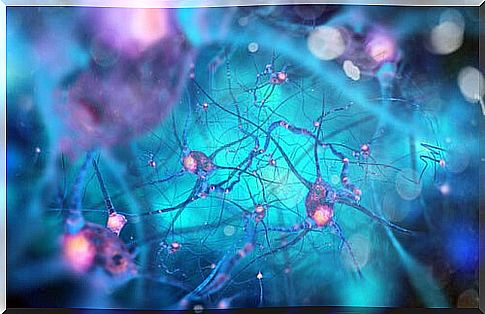Your Brain Also “purifies ” What Is Not Useful, What Is Left Over, What You Do Not Need …

Unlearn to learn, eliminate what is not necessary to make room for what is useful to what is significant. Our brain, curious as it may seem, also performs delicate recycling tasks while we sleep or meditate to purify itself, to remove “weeds” and to allow stronger neural connections, thoughts and much more useful and valuable learning to flourish.
Arthur Conan Doyle showed us in “A Study in Scarlet” how John Watson was surprised at one point about something amazing about his quirky new roommate. Sherlock Holmes was unaware that the Earth revolved around the sun. Now, the famous consulting detective gave him an excellent reasoning about why he ignored that and other series of data that for most were obvious.
The brain of a person – explained Holmes – is like a small empty attic in which you have to put the furniture that you prefer. Foolish people pile in that space a whole series of various objects that they find by hand. Little by little there is no room in it for useful knowledge. However, the skilled craftsman is extremely careful what he puts in the attic of the brain: he only accepts tools that can help him do his job.
Almost without knowing it, Conan Doyle showed us in that little introduction to “Study in Scarlet” a basic principle about that economy or internal gardening where the brain decides which synaptic connections to feed and which to destroy. It does so based on our lifestyle, interests, experiences, and learning.
Neurologists, for their part, often say metaphorically that we have a delete “button” that allows us to save space, eliminate what is not useful in order to build new and stronger connections with which to consolidate more meaningful learning. . We explain how.
In the brain, learning also implies “destroying”
Many of us still hold the classic idea that the more synaptic connections our brain makes, the better. We tell ourselves that this is how we consolidate more learning, more aptitudes, skills, data, knowledge … However, Sherlock Holmes’ theory continues to be right in this case: the brain is not an empty attic in which to accumulate unrelated things, randomly and massively.
The brain is a sophisticated organ that likes to economize and specialize in capabilities commensurate with its owner. Let’s take an example: we have decided to learn to play the piano, we are very excited and we attend classes for one hour a week. In this case, the impact on our brain will be minimal. However, if we get serious about it, and start practicing it on a daily basis, amazing things are going to happen.
One of them is the so-called “synaptic pruning”, that is, to create new synapses and new circuits in this musical learning, the brain will first eliminate old neural connections that are not useful to it. It needs space and it also needs to build new routes, new bridges and untangle cables so that a “new energy” can flow.
To better understand it, we can imagine our brain as a garden. Instead of flowers, what grow are the synaptic connections between neurons, pathways through which neurotransmitters such as dopamine or serotonin pass. Now, for these new structures to flourish, the weeds must first be removed, the old leaves must be raked and removed to make room. This task is carried out by the “microglial cells”, magical entities to which we owe our ability to consolidate new learning. It is something wonderful.

Sleep or meditate, two strategies for your brain to eliminate what is not useful
We already know that our ability to learn transcends in many cases our own biology. Now, you will also like to know that for these new knowledge to be adequately consolidated we need to sleep. Neurologists often say that a sleep-deprived brain is like a wild jungle in which it is impossible to move forward: it is something chaotic, dark, suffocating and overgrown with excessive undergrowth.
To open roads, clear the ground and get free space we need a deep and restorative rest. It is then that the glymphatic system comes into action; it is he who carries out the laborious task of eliminating waste substances, residues and all dead cells generated by synaptic pruning. On the other hand, it should be noted that a short nap of 15 minutes at noon or even 20 minutes of deep meditation is also useful to make room for new neural connections.

Likewise, and as an important piece of information to conclude, neuropsychologists remind us that sometimes the simple fact of stopping concentrating our attention on one aspect or “breaking” the cycle of those obsessive thoughts that focus on the same topic or one The same person also allows us to “deactivate” that synapse and reduce its strength. It is like pressing the “erase” button, thus allowing the attic of our brain to be a more comfortable, spacious and more in tune with our needs.
A subject without a doubt interesting that is worth taking into account.









